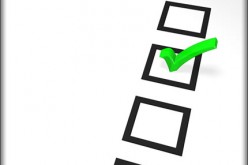Money stops being theoretical the moment rent is due, or your fridge sits empty. And financial mistakes made now don’t just sting—they echo. But here’s the quiet advantage: learning to handle your money early isn’t about being perfect.
It’s about setting up small systems that do the heavy lifting while you figure everything else out. Those early systems, once set, become shock absorbers for everything adulthood throws your way.
First-Time Budget Planning
Budgeting isn’t just helpful—it’s survival when you’re living on your own. You need to see clearly what comes in, what goes out, and what’s slowly bleeding your wallet dry. Starting from scratch can feel overwhelming, which is why using a free budget template can cut that learning curve fast.
You can choose from a range of templates—monthly, weekly, household-specific—and adjust one that fits how your money flows. Having a customizable structure makes it easier to stick with, and the consistency that comes from clarity is what keeps your head above water.
Building Savings & Emergency Reserves
Stuff breaks. People cancel. Jobs fall through. And when they do, having backup money means you don’t spiral. That’s what makes building an emergency fund so critical. You don’t need three months of expenses right away—but you do need momentum.
Start with $500. Then aim for one month’s rent, and build from there. Keep it separate from your checking account so it’s hard to “accidentally” dip into it. The confidence that comes with a financial cushion is immediate—you walk into every room a little taller.
Managing Credit & Debt
Credit is invisible until it’s not. It shows up when you try to rent an apartment, get a car, or sign up for utilities. Building it early helps, but the wrong move can stick to your name for years. The rule is simple: don’t charge what you can’t pay off.
Build credit by paying on time and staying well below your credit limit. One secured credit card and a $15 monthly charge paid off immediately is enough to start. Don’t close your oldest accounts. Don’t co-sign anything for anyone. Credit isn’t about fancy tricks—it’s about showing you’re dependable, every single month.
Starting a Side Business for Extra Income
Sometimes your paycheck doesn’t stretch, no matter how careful you are. That’s when building something on the side starts to make sense—not just for money, but for control.
Forming an LLC, making a logo, setting up a site, and figuring out the books might sound like a lot, but platforms like ZenBusiness handles the heavy lifting in one place. It gives you the legal and creative support to turn a loose idea into an income stream you own.
Whether it’s freelancing, dog walking, or selling something niche, that side business becomes a buffer that buys you options.
Automating Smart Saving Habits
Habits beat motivation every time. You might mean to save—but it only sticks when it’s automatic. That means you need to set up automatic savings transfers that move money before you even see it.
Start with $20 per check if that’s what you can swing. Raise it later. The goal is consistency, not volume.
Automation frees you from willpower and makes saving just another background process in your financial operating system. Once you get used to living without that extra slice of your paycheck, you won’t even miss it.
Setting Financial Goals & Retirement Early
No one talks about retirement when you’re twenty, but they should. Because saving early really matters. Money put away in your twenties works harder than money saved in your forties. That’s the beauty of compound interest.
You don’t have to invest like a Wall Street wizard—just put a little in a Roth IRA or retirement account each month. Even small amounts—$50 here, $100 there—grow over time in ways you won’t believe. And the earlier you start, the fewer headaches you’ll have later trying to catch up.
Meal Planning to Cut Food Costs
Food costs creep up fast—$8 for lunch, $20 on DoorDash, a few grocery trips where you buy ingredients that don’t add up to real meals. The secret? Cook once, eat three times.
When you meal prep to cut food costs, you control not just what you eat, but how much you spend. Buy ingredients with overlap. Make a base meal that stretches into leftovers.
Freeze what you won’t eat right away. It’s not about becoming a chef—it’s about making money and food last longer, together.
You don’t need to be rich to feel in control—you just need a few smart systems that protect you while you learn. Avoiding chaos isn’t about giant paychecks or spreadsheets.
It’s about clear steps, early habits, and setting yourself up to not panic every time something breaks.
The earlier you start budgeting, saving, and building credit, the more choices you’ll have when it matters. You’re not just avoiding debt—you’re buying freedom. And that’s the best currency you can carry into your future.
Discover a wealth of resources to master your finances and career at SayEducate, where expert advice meets practical tools for a brighter future.
Image Credit: getting started with money by envato.com
end of post … please share it!
end of post idea for home improvement
view and analyze home improvement ideas at our LetsRenovate center
Helpful article? Leave us a quick comment below.
And please give this article a rating and/or share it within your social networks.









